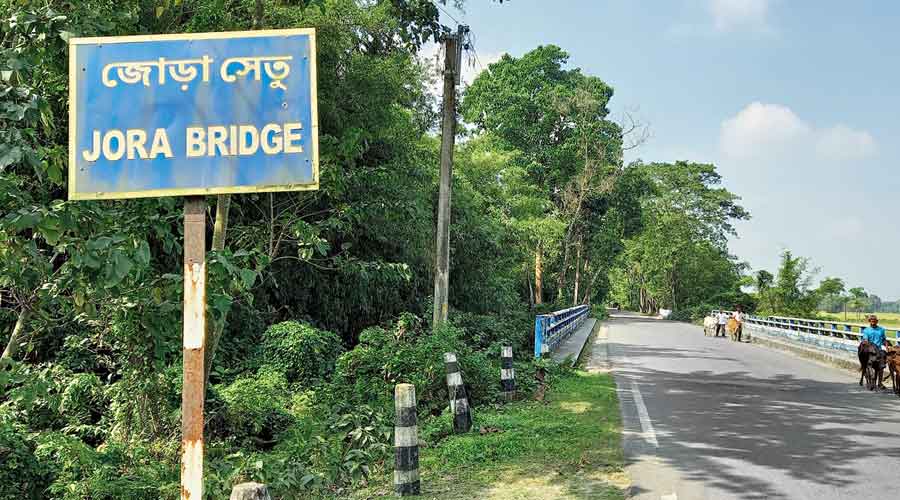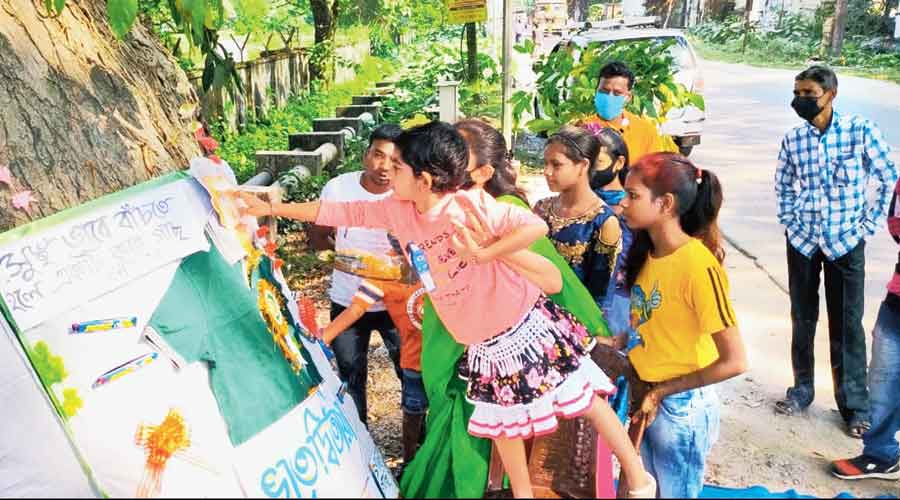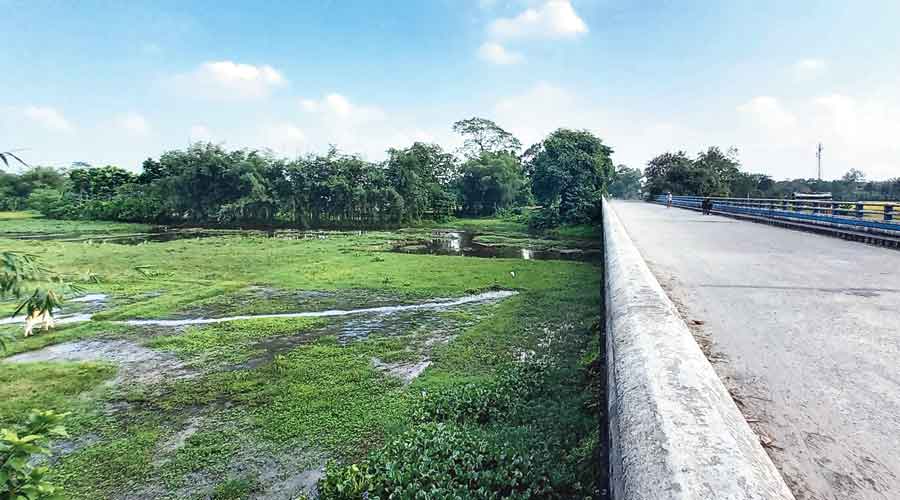At least three rivulets flowing through Jalpaiguri district have dried up and their beds have changed into fertile agricultural land over the years.
On a drive along the state highway that connects Jalpaiguri town with Haldibari in Cooch Behar district — both towns are on the right bank of the Teesta — one will come across three bridges.
However, a closer look below the bridges will not reveal rivers but riverbeds full of lush green crops ranging from paddy to vegetables.
Back in 1971, when a bridge was built over the Buri Teesta, a distributary of the Teesta, there used to be water in it all round the year, recall senior residents of Kashiabari, a nearby locality.
“But over the years, the river has dried up. The riverbed has now turned into agricultural land. It is disappointing that we have lost a natural water source,” said Pradip Burman, a senior fisherman.
Like Buri Teesta, two other streams — the Kalai and Kali — located between Ghughudanga and Kashiabari on the Jalpaiguri–Haldibari route have also dried up.
Paritosh Burman, a farmer who lives in Ghughudanga, said they cultivated different crops, especially vegetables, on the beds of both these streams.
“When there is heavy rain in nearby areas, some water accumulates in the beds. Otherwise, there is hardly any sign of water here. Many of us cultivate crops on the beds as the soil is quite fertile,” the farmer said.

A signboard along the Jora Setu bridge over Kalai, another stream that has dried up, along the Jalpaiguri-Haldibari road. Biplab Basak
He said if the bridges were replaced by roads, nobody would even know that the rivulets ever existed in the area.
Experts, when told about the drying up of these streams, said it was necessary to stop encroachment along riverbeds and agricultural activities on the dry patches of land.
“The beds should be kept free so that the river water can flow in its natural speed. Such depletion of natural water resources can pose problems for the adjoining areas in due course,” said Jatiswar Bharati, a retired teacher and a state committee member of Bangiya Bhugol Mancha.
Officials of the state irrigation department said they were aware of the situation and would take steps to revive the flow of these streams.
“During the past few years, we have managed to revive two rivulets in Alipurduar and one in Cooch Behar. We have plans to start reviving these streams as well, starting with Buri Teesta,” said Shubhankar Chakraborty, the chief engineer (north-east) of the department.
Dear brother tree

Main Uddin Chisti
Members of Astha Foundation, a social organisation in Cooch Behar, celebrated Bhaiphonta on Saturday by putting the auspicious phonta or sandal dot on a Talli (Albizia saman) tree, also known as rain tree.
One of the oldest trees in the town, famed for its canopy, it had been planted when Cooch Behar was a princely state.
Children also put phonta on the tree. Astha Foundation members gave saplings to 150-odd people. “We wanted to use the festival to spread the message on protecting trees,” said Shankar Roy, a member.











